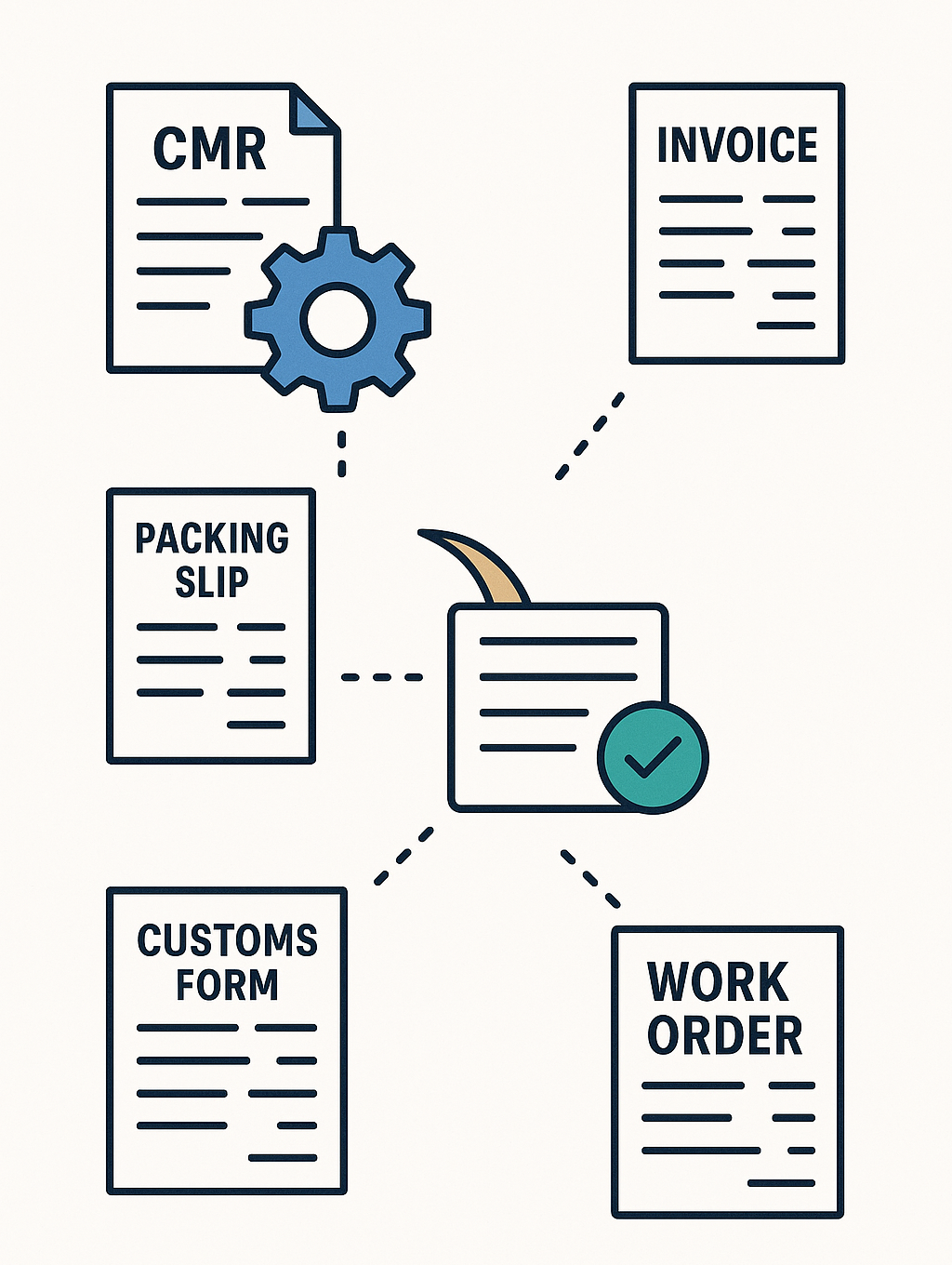Table of Contents
1. Why document automation matters now
2. The impact of repetitive document work
3. The 5 best documents to automate right away
4. What automation delivers for your operations
5. How this works with DocHeart
6. Next step: where to begin?
1. Why Document Automation Matters Now
Every logistics operation runs on documents — yet many are still handled manually. That takes time, introduces errors, and limits your scalability.
Today, smart AI tools can handle this work faster, safer, and with greater accuracy.
With document automation, you can already save hours — without overhauling your systems.
2. The Impact of Repetitive Document Work
Your team spends time every day on:
- Filling in, checking, and saving CMRs
- Matching packing slips with shipments
- Printing, signing, and scanning customs forms
- Logging work orders in Excel
- Manually entering purchase and sales invoices into the ERP
It may seem harmless. But with 10 to 100 shipments per day, this adds up to dozens of hours per week.
3. The 5 Best Documents to Automate Right Away
- CMR (Consignment Note)
The most used logistics document. DocHeart reads CMRs, extracts key info (sender, recipient, cargo, timing), and validates completeness. - Packing Slip
Packing slips are often manually checked and matched with orders. Automation reads the line items, compares them to your order system, and processes them instantly. - Customs Form
Any error or omission can cause delays or fines. DocHeart checks for all required fields and prepares the form for audits automatically. - Work Order / Transport Order
These often arrive by email or on paper. DocHeart digitizes them, reads the task info, and links it to the correct shipment or department. - Purchase Invoice (Logistics Costs)
Automatically extracts amounts, VAT, supplier info, and matches with order references. Reduces payment errors and duplicate entries.
5. How This Works with DocHeart
- Upload or receive documents (PDF, scan, email)
- AI reads the fields and extracts the data
- Validation for missing info or errors
- Routing to the right team, system, or export
- Output: traceable, audit-ready, and instantly usable
No major IT changes needed. Start with one document type, test in production, and scale up later.

4. What Automation Delivers for These Documents
Result |
Impact |
| 80–90% less manual work | Immediate relief from admin burden |
| Fewer errors & delays | No more missing or incorrect data |
| Faster processing time | Documents flow through your process automatically |
| Better insight & control | Everything is digital, structured, and traceable |
| Scalable process | Handle more volume without extra staff |
6. Next Step: Where to Begin?
Choose one document type that takes the most time (e.g., CMR or customs form). Automate that process. Measure the impact. Then scale up gradually.
You don’t have to do it alone — we’ll support you with a Proof of Concept so you can see results fast.